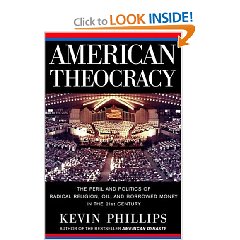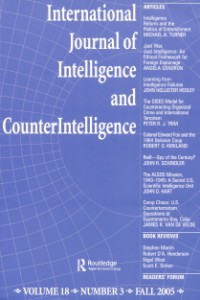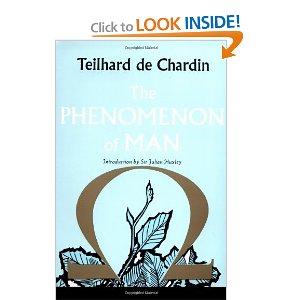1) There is no other author who has written in such depth, over the course of four books, on the Republican party, the Bush dynasty, and the inter-relationship between the religious right and corporate wealth. This Republican is as serious an analyst as any that can be found. he joins Clyde Prestowitz, Paul O'Neil, and Peter Peterson as “go to guys” for when Senator John Edwards forms the American Independence Party and breaks away from the idiot Democrats and the Clinton mafia.
2) The author has done his homework and very ably integrated, with all appropriate footnotes and index entries, three broad literatures, two of which I have read multiple books on (oil and debt), one on which I have not (radical US religion–fully the equal of Bin Laden and suicidal terrorists, these folks just send others to do the dying for them).
So I have to say, given that this is a serious book by a serious author, why so many obviously loosely-read individuals writing short dismissive reviews? I have to conclude he has touched a nerve. When I used to appear on NPR, before I was kicked off for condemning Israeli lobbyists and suggesting that the common Arabs (the real people, not the sadistic opulent corrupt House of Saud or the other dictators) never got a fair shake from the US, I would get hate calls and mail from what I now realize were know-nothing radical right-wing religious nuts. We'd get into the issues, and I would ask, “what books have you read on this?” only to be told, “There is only one book that matters, the Bible.”
Well, this author has helped me understand where the Bush constituency comes from: these are the folks that graduated from rote reading of the Bible to the “Left Behind” fiction series. They are the intellectual equals of the Islamic kids learning to be suicide bombers by reciting old Arabic they don't understand.
If you do not have the time or money to buy all the other books I have reviewed, spanning emerging threats, the lack of strategy and the inappropriate force structure, the anti-Americanism that we spawn, the corruption of Wall Street and the shallowness of white collar law enforcement, the end of cheap oil, the end of free water, the rise of pandemic disease, the coming date with destiny when the 44 dictators we support are overthrown and the US pays the price for its long-term nurturing of all but three of them….this book brings a lot together. It avoids only two really important topics: the environmental implications such as covered by TIME Magazine in the 3 April 2006 cover story on Global Warming; and the minutia of how America is no longer a real democracy–not only do most voters not vote, but once elected, most Congressman are corrupted immediately by lobbyists.
The author, who is uniquely qualified to sum this all up in this book because of his three prior books centered on the Bush Family, oil, and wealth, does a tremendous job of outlining how oil money ultimately bought the White House and Congress. If you have time for two other books, I recommend Crossing the Rubicon: The Decline of the American Empire at the End of the Age of Oil in which a former LAPD investigator makes a case for indicting Dick Cheney for fabricating the march to war on Iraq under the delusion that we would get another ten years of “cheap oil” and Twilight in the Desert: The Coming Saudi Oil Shock and the World Economy in which it is clearly documented that both Congress and the White House knew in 1974-1975 that Peak Oil was over, and they concealed this for another 25 years in order to keep the bribery coming–this was nothing less than a treasonous betrayal of the public interest worthy of retrospective impeachments for all concerned. The books by moderate Republicans Prestowitz (Rogue Nation: American Unilateralism and the Failure of Good Intentions) and Petersen (Running on Empty: How the Democratic and Republican Parties Are Bankrupting Our Future and What Americans Can Do About It) should be read as well as Brand Hijack : Marketing Without Marketing which is about why Paul O'Neil quit the Bush Administration–he realized that ideological fantasy and Dick Cheney had displaced a reasoned policy process, the Cabinet, and Congressional concurrence…..
This is a very bad time. This book is as good as any at setting the stage for intelligent people to campaign and vote in 2006 and 2008.
EDIT 7 Dec 07: Since I wrote this review, several gems are newly available:
American Fascists: The Christian Right and the War On America
Piety & Politics: The Right-Wing Assault on Religious Freedom
God's Politics: Why the Right Gets It Wrong and the Left Doesn't Get It (Plus)
Vice: Dick Cheney and the Hijacking of the American Presidency
and on and on and on….










